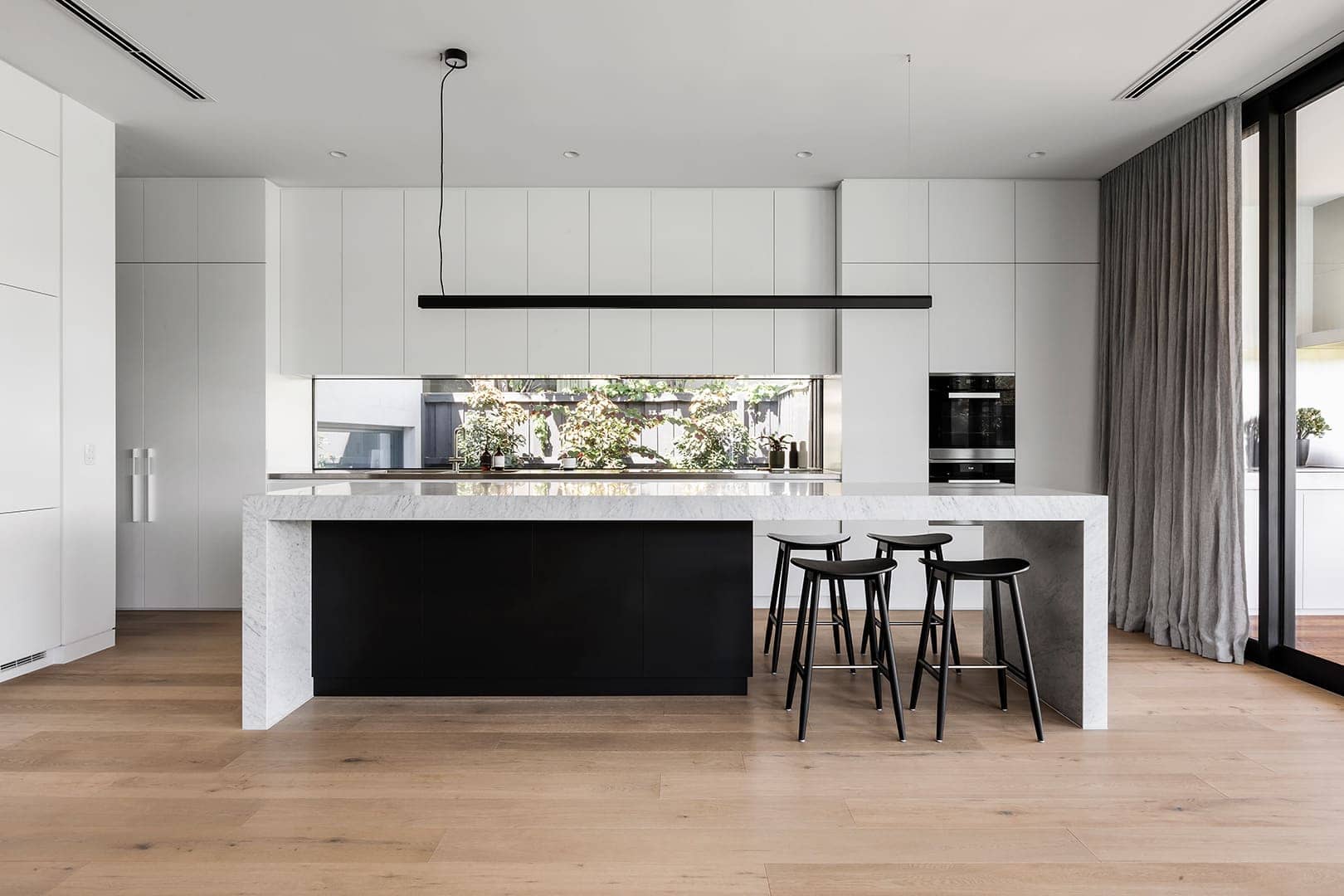Chances are, you automatically think of granite or quartz when you think of kitchen countertops, but have you ever considered porcelain? Yes, porcelain is an up-and-comer in the countertop game. We’re here to tell you why.
Europeans have been using porcelain countertops for a while now, but it’s just starting to make its mainstream debut here in the States.
What is Porcelain Made Of?
It’s basically made from a type of clay called China clay, comprised of a high percentage of a mineral known as kaolinite. There’s also some silica, feldspar and other mineral oxides in there, which, when all mixed together, become very strong and durable. It’s all put into a kiln and fired at very high temps. The result? A dense material that is resistant to stains, heat, UV rays, scratching, cracks and chips.
During manufacturing, pigmented glazes are added to create various colors and patterns. You can get porcelain counters glazed or unglazed. If you decide on a glaze, this will decrease how porous the end slab will be, which reduces staining and makes for a nice shiny finish.
Just remember, the pattern or color of glazed porcelain only appears on the surface, so if it’s chipped or cracked, the interior color (which may be different) will show. When it’s unglazed, the color of the porcelain will extend throughout the full-body thickness.
Pros of Porcelain Countertops
There are many benefits of porcelain countertops. Porcelain is:
Stain-Resistant
While no surface is 100 percent stain-proof, porcelain comes the closest because it’s non-porous. This means liquids do not absorb and if you ever do notice a stain, you can easily clean it.
Porcelain also happens to be resistant to most chemicals, and won’t etch or develop dull spots from acidic foods and beverages like marble will.
Heat-Resistant
Because they are manufactured at extremely high temperatures, porcelain countertops can take a lot of heat. This means you can set your hot pots on the surface and they won’t scorch or damage the surface.
Scratch-Resistant
Porcelain resists scratching just like with granite and quartz. However, don’t use ceramic knives which have been known to scratch porcelain in rare cases.
Chemical-Resistant
Acidic foods, drinks, and/or chemicals won’t dull or etch the surface like it will to marble or travertine. Additionally, chemicals won’t discolor or bleach out porcelain countertops, as may happen with quartz.
Durable
Porcelain kitchen countertops are very hard and durable, able to withstand a variety of impacts. This doesn’t mean chips and cracks can never happen, but it’s rare.
UV Light Resistant
Porcelain resists ultraviolet light, so it won’t fade from sunlight exposure.
Variety of Colors and Patterns
Porcelain comes in a wide spectrum of colors and patterns, many of which can mimic the look of natural stone like marble.
Sealing is Unnecessary
Generally, you don’t need to seal porcelain countertops because the fire glazing guards against staining and moisture.
Environmentally-Friendly and Recyclable
Porcelain, made of 100% natural, raw, and clay-based materials, can easily be recycled later on.
Contact Granite Guy
Eager to learn more about porcelain countertops? Get in touch with Granite Guy today at 508-460-7900 to learn more about this breath-taking option and how you can incorporate it into your home.

